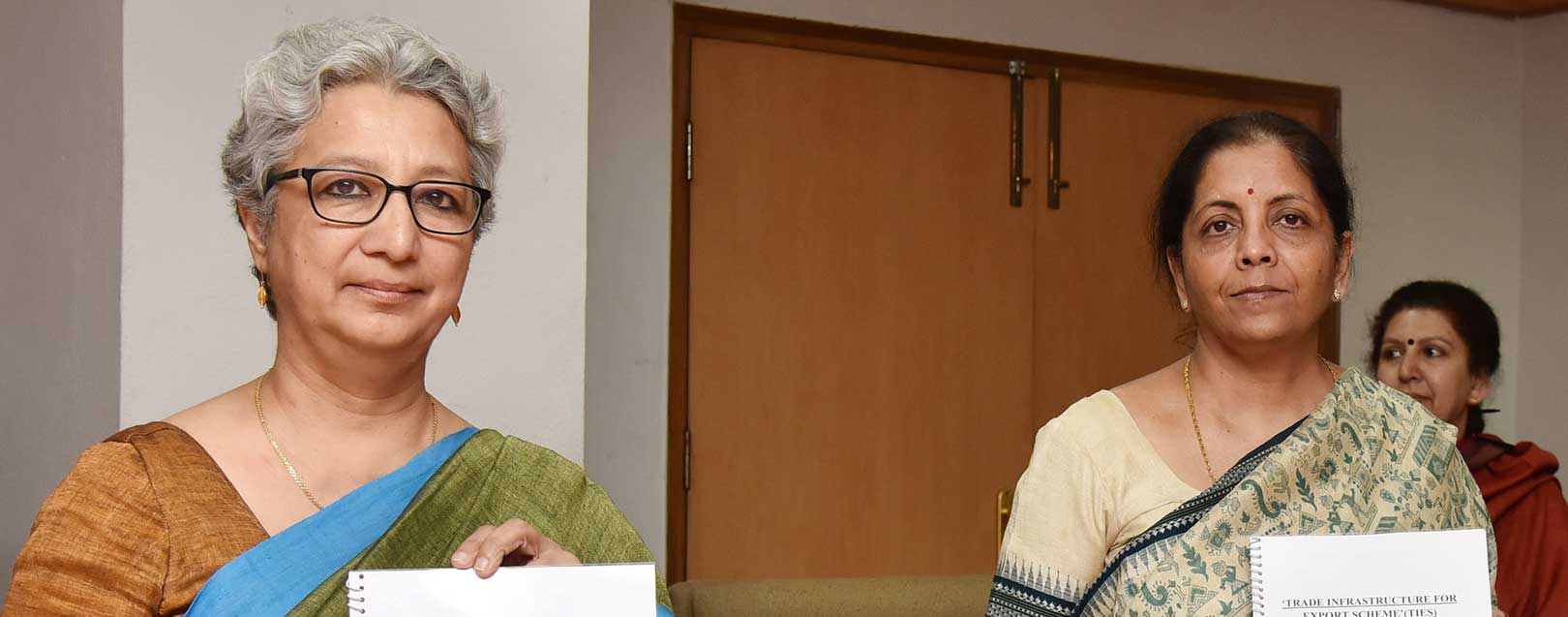
Government launches scheme to promote export infrastructure
The Dollar Business Bureau
The Minister of Commerce and Industry, Nirmala Sitaraman, launched the Trade Infrastructure for Export Scheme (TIES) on March 15, 2017. Through this scheme, the government intends to plug gaps in trade infrastructure and facilitate forward and backward linkages for traders.
Spearheaded by the Commerce Secretary, the committee, appointed to oversee sanctioning of projects under the scheme, comprises of officials from among other ministries as well. Senior members from DGFT, DIPP, NITI Aayog, Ministry of Home Affairs and Ministry of Development of North-East Region will form the 10-member committee.
This new initiative, which will commence on April 1 2017, proposes to ease the burden of traders who bear unnecessary costs due to lack of infrastructure in areas like cold storage or cargo handling facilities at ports.
Only projects which can establish a direct link to the benefit of export industries would be financed under the scheme. Integrated check posts, border haats, trade promotion centres, export warehousing, customs checkpoints, and last mile connectivity projects will be given preference. The funding will be shared equally among the Centre and states, except in the north-eastern region, where the Centre will bear upto 80% of the costs.
“The idea of this scheme is to address those gaps in infrastructure which are not addressed by any other scheme. It will help to ensure smoother movement of export cargo and also ensure quality standards and certification,” Commerce Secretary Rita Teaotia said.
The budget has commissioned a total amount of Rs. 600 crore for the scheme, spread over three years in installments of Rs. 200 crore. Ending in the fiscal year 2019-20, the scheme will spend 5% of its budgetary allocation in review and monitoring operations.
The Minister said that the scheme would also undertake maintenance operations for completed projects, for which a pay-and-use mechanism will be deployed. The project monitoring role will be assigned to a professional agency on a national/regional level. Rajasthan and Karnataka, the two states that Sitaraman mentioned, have already proposed projects under the scheme.
For individual projects, the financial aid from the scheme is capped at 20 crore. Other financers of the projects will be considered by the committee in the process of approval.






 to success.
to success.